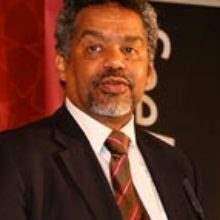Executive Summary
Dr. Abdelwahab El-Affendi, a leading expert on democratization in the Muslim world, provides an outside vantage point on the recent enthusiasm in U.S. policy circles for engagement with and reform in the Muslim world. He lays out the perspective that, in general, the renewed U.S. interest is certainly a welcome development, even when it comes about for the wrong reasons. However, he cautions that the difficulties faced so far by the United States are not just a matter of technique or style. When the country which commands unchallenged hegemony in both the technology and the art of communication appears unable to get its message across, it can only be a symptom of a deeper concern.
El-Affendi finds that the problem stems from adopting an American-centered strategy, which focused on American understanding, needs, fears and aspirations, and then proceeded to try to shape the world accordingly. Devising a public diplomacy campaign, which has been closely linked and integrated with the military/ intelligence apparatus, and billed as a part to the “war on terror” it thus presented an instrumentalist and hegemonistic approach, which shows little respect for Muslim intellects or sensibilities and thus is hamstrung from the start. A deeper problem relates to the common assumptions that there is something fundamentally wrong with Islam and Muslim populations, which can only be cured by outside input, IV The Con q u e s t o f Muslim He a r ts and Mi n d s ? whether in the shape of “education” or induced social and political reform.
The question of whether the rise in violent anti- Americanism could be blamed on what is wrong with America or what is wrong with the Middle East is also a problematic starting point. El-Affendi argues, that both answers are partially right. There is plenty that is wrong with the way the United States has conducted itself in the region, while at the same time there is plenty that is wrong with Middle Eastern governments and societies.
By encouraging reform, but only within limited bounds for its autocratic allies, and launching campaigns of public diplomacy, the current administration has opted for curing the ills abroad first. This will be an uphill task, especially given America’s low reservoir of credibility in the region. The tools adopted are also discouraging; since the impression in the region is that the United States is resorting to propaganda, manipulation, and even religious subversion. Until they can establish their credibility, the limited U.S. programs in democratization, public diplomacy, and other reform efforts, will thus appear as a half-hearted campaign to conquer, rather than win, Muslim minds (and no attempt at hearts).
The challenge is to untangle the web of assumptions linking despotism, terrorism, religious extremism and the current strategies in the areas of democracy promotion and public diplomacy based on these assumptions. He rejects the widely accepted argument which links anti-Americanism and terrorism to specific religious motives, and argues that attempts to deal with the problem through promoting “religious reform” is both dangerous and misguided. He also dismisses the even more common argument that democracy could be a direct cure for terrorism. Instead, the drive to promote political reform and democratization in the Middle East should be supported for its own sake.
To achieve success, any strategy for engagement with the Muslim world must not be viewed as an exercise in propaganda or as an extension of the war effort. Instead, it has to be a serious dialogue about policies and politics. To be effective, this dialogue must engage genuine representatives of the target communities. As U.S. officials now ritually admit, the problem of U.S. policy has for a long time been its predilection to talk to the wrong people, mainly entrenched dictators, who were themselves out of touch with their people, or an isolated fringe of the pro-Western, secular elite. But it is yet to take the next obvious step. The admission of an error in policy should be followed by a change in policy. Other than continuing complicity in corrupt oppression, there is no alternative to sincere and resolute support for democratic reform in the Middle East and other Muslim regions.
Thus, El-Affendi concludes, the United States is presently trying to walk a tight-rope between engaging the populace in public diplomacy dialogue while still doing business with regimes it has openly identified as their oppressors; officials want to have their despotic cake and eat it too. The problem of U.S. advocacy of reform is not that it is too intrusive, as the complaint often is, but that it is too timid and half-hearted. It is perceived as such, and thus regarded as insincere, further contributing to the crisis of U.S. credibility. The solution is not to engage in yet another sales pitch, but to embark on a genuine political engagement based on mutual respect and the sincere search for workable policies. El-Affendi cautions that this process will not bring an immediate, silver bullet solution, as politics will sometimes exact a price. That is, support for reform may not always succeed, nor will the outcome always please its advocates. But the policy so far, of trying to play the game but avoid the costs, has only led to greater peril.



